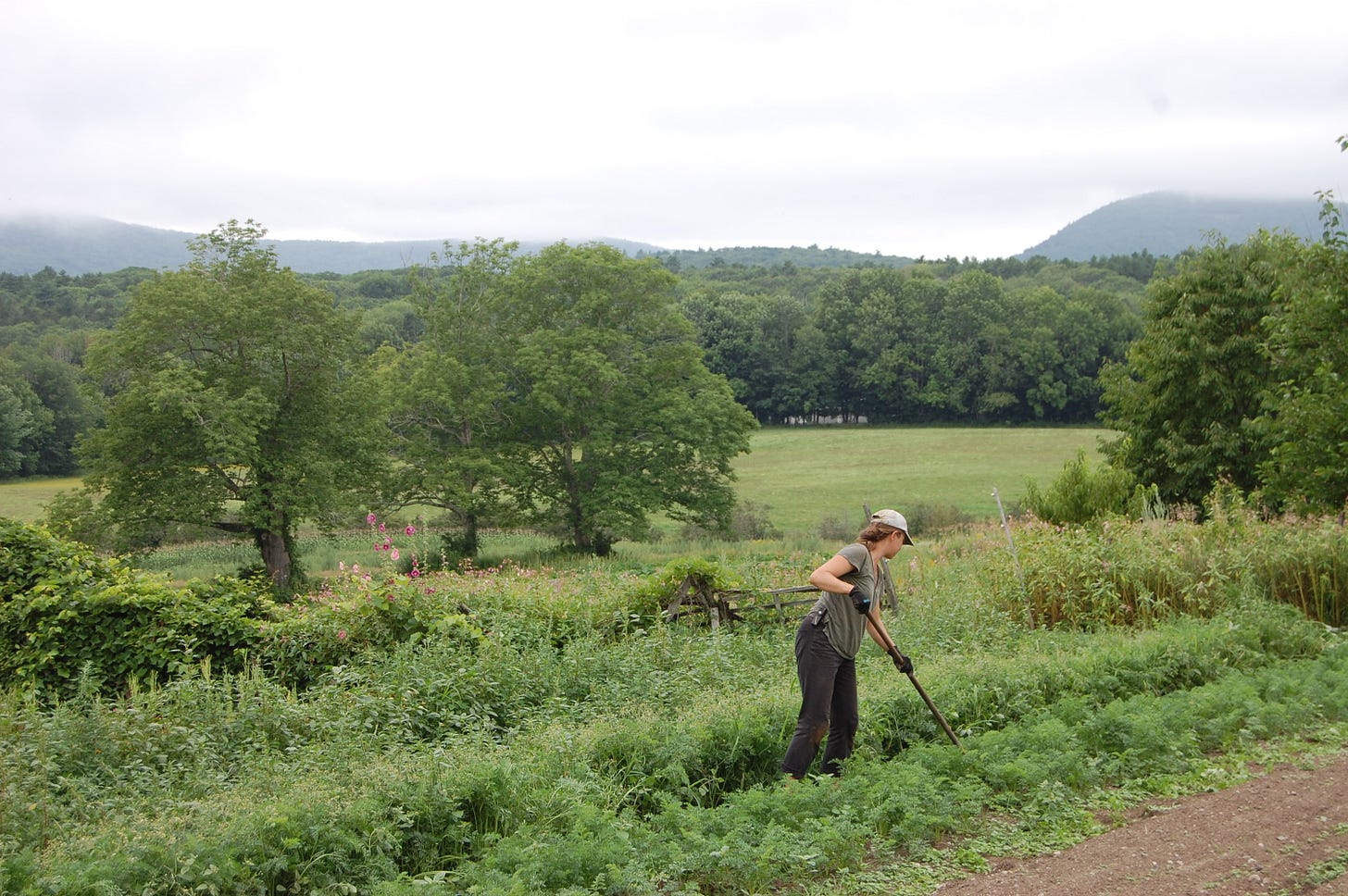As I have mentioned in previous posts, this year I’ve started doing double duty reporting my own stories and also working with other reporters to develop content for a new journalism initiative of the Environmental Working Group called The New Lede. We hope to shine a little light on environmental stories that other outlets may miss. Given the fact that these issues impact our health and the future we’re leaving our children, I don’t think we can afford to miss much.
Here is a quick summary of some of the latest from The New Lede:
As farmers struggle with PFAS ‘forever chemicals,’ Maine races for solutions
For the past 18 years, Maine farmer Bill Pluecker has worked long hours tending to his family’s organic vegetable farm, growing crops he sells directly to consumers through a community agricultural program.
Working on the farm is a job that Pluecker juggles with his elected position as a state lawmaker, and the combination of roles gives Pluecker particular insight into a devastatingly broad environmental contamination problem farmers are facing throughout Maine, and around the United States.
The problem is PFAS. Often referred to as “forever chemicals” because they do not break down and can persist indefinitely, per- and polyfluoroalkyl substances (PFAS) have become recognized as a significant health and environmental threat with long tenacles. Researchers have found PFAS contaminating water, soil, food, and even the bodies of humans and animals around the world.
“It’s overwhelming; it’s in our products, in our bodies, in our food system,” said Pluecker, who is grateful that his own farm appears not to be contaminated with the PFAS he calls “poison.”
Maine has passed an array of measures to lead the nation in addressing the problems of PFAS on farms.
One recent estimate by the Environmental Working Group pegged U.S. cropland potentially affected by PFAS at 20 million acres.
Fight food and gas prices, or the climate crisis?
Inflation, food and gas prices, and supply shortages are all on the rise, and they are a central issue in the fight over a federal rule designed to promote biofuels.
The Environmental Protection Agency on June 3 legal signed the final version of its latest renewable fuel standard (RFS) rule – a regulation through which it sets annual prediction targets for renewable fuels such as corn ethanol.
The RFS, created by Congress in 2005, is a program through which the EPA sets annual production targets for cellulosic biofuel, biomass-based diesel, advanced biofuel and total renewable fuel, which includes ethanol made from corn, along with fuels derived from other material. The program was designed to expand the U.S. renewable fuels sector, lower GHGs from transportation, and reduce dependence on imported oil.
In meetings with EPA and White House officials ahead of the final rule’s release, industry players from jet fuel producers to pet food makers warned that any federal push to boost renewable fuel production could hike already rising food and gas prices and exacerbate supply shortages.
Biofuels proponents in their meetings with the Biden administration countered that there’s sufficient feedstock – renewable material which can be used or converted to use as transportation fuel, such as corn – to satisfy ambitious RFS goals while also meeting needs for non-fuel uses like food.
More on Monsanto-related maneuvers
If you missed it from last week, check out Monsanto’s former CEO testifies about Roundup
The former CEO of Monsanto was in court last week to testify in the case of Allan Shelton, a 34-year-old man suffering from non-Hodgkin lymphoma who alleges his repeated use of Monsanto’s Roundup herbicides caused his disease.
I was in the courtroom to report on the back-and-forth between former CEO Hugh Grant and the attorneys.
Another Roundup cancer trial is currently underway in Medford, Oregon. Stay tuned for more on that. And yet another trial is due to start in July in St. Louis. Will they ever end???
Also in the ‘stay tuned’ category: In an interesting strategic twist, a group of plaintiffs’ attorneys who have not yet tried any Roundup cases are pursuing a so-far untested discovery effort that would force the deposition of Bayer CEO Werner Baumann. What did he know and when did he know it?
The discovery motion will be heard in a Delaware court next week. I’ll have more on this later.
In the meantime, I hope you’ll subscribe (for free) to The New Lede, and donate if you can!!







is there anyone out there who actually believes that ethanol is a viable clean fuel alternative?